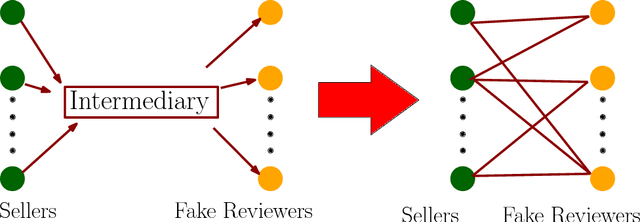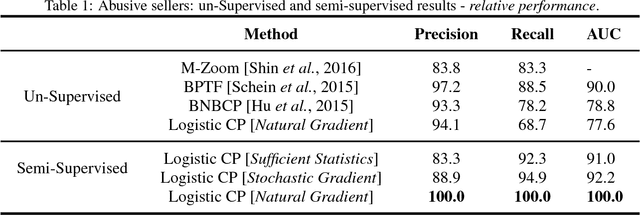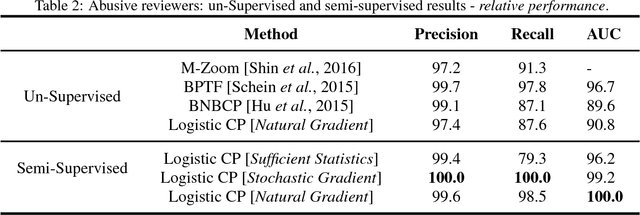Anil R. Yelundur
Detection of Review Abuse via Semi-Supervised Binary Multi-Target Tensor Decomposition
May 23, 2019



Abstract:Product reviews and ratings on e-commerce websites provide customers with detailed insights about various aspects of the product such as quality, usefulness, etc. Since they influence customers' buying decisions, product reviews have become a fertile ground for abuse by sellers (colluding with reviewers) to promote their own products or to tarnish the reputation of competitor's products. In this paper, our focus is on detecting such abusive entities (both sellers and reviewers) by applying tensor decomposition on the product reviews data. While tensor decomposition is mostly unsupervised, we formulate our problem as a semi-supervised binary multi-target tensor decomposition, to take advantage of currently known abusive entities. We empirically show that our multi-target semi-supervised model achieves higher precision and recall in detecting abusive entities as compared to unsupervised techniques. Finally, we show that our proposed stochastic partial natural gradient inference for our model empirically achieves faster convergence than stochastic gradient and Online-EM with sufficient statistics.
E-commerce Anomaly Detection: A Bayesian Semi-Supervised Tensor Decomposition Approach using Natural Gradients
May 29, 2018



Abstract:Anomaly Detection has several important applications. In this paper, our focus is on detecting anomalies in seller-reviewer data using tensor decomposition. While tensor-decomposition is mostly unsupervised, we formulate Bayesian semi-supervised tensor decomposition to take advantage of sparse labeled data. In addition, we use Polya-Gamma data augmentation for the semi-supervised Bayesian tensor decomposition. Finally, we show that the P\'olya-Gamma formulation simplifies calculation of the Fisher information matrix for partial natural gradient learning. Our experimental results show that our semi-supervised approach outperforms state of the art unsupervised baselines. And that the partial natural gradient learning outperforms stochastic gradient learning and Online-EM with sufficient statistics.
 Add to Chrome
Add to Chrome Add to Firefox
Add to Firefox Add to Edge
Add to Edge